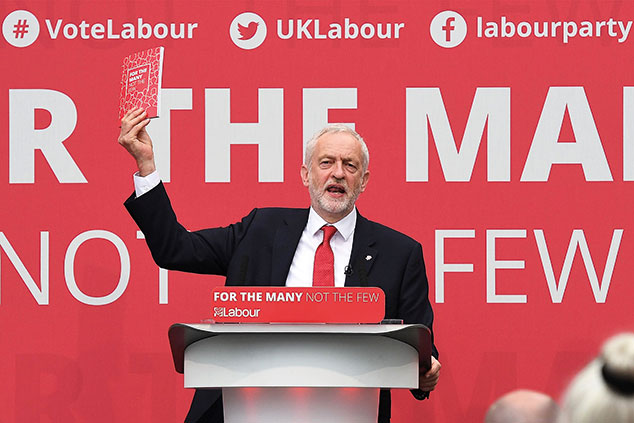
But we quite clearly aren’t going to get either of those. So, if we insist on raising more money, how are we to attempt to do it? The idea of a wealth tax is obviously attractive to all politicians. But it comes with trouble – which is why almost no other OECD countries do it (17 did in 1990, four do now). It’s hard to calculate, easy to avoid and hugely unpopular with anyone not making an income from their assets (even more of a problem in our low-rate days than usual). At the same time, many of the usual revenue-collecting methods are working less well than they once did: there is a reason why the trade war is focused on digital taxes this week. Income tax revenues are increasingly elusive too: in this week’s magazine Dominic Frisby gives us his take on wringing old-fashioned revenues out of modern gig workers, particularly now governments have removed so many people from the income tax net (43% of adults now pay none).
We look at the tax implications for you of each manifesto at moneyweek.com, but it seems to us that to raise more money, more people will need to pay some income tax (successful taxes usually involve charging everyone a little bit); we will need to revisit the idea of not charging capital gains tax (CGT) on primary homes; and that of creating a gift tax. It’s much easier to collect taxes from assets when those assets are on the move than when they are static. They key here, of course, is constant creative thinking rather than constant fiddling around the edges (we look in the magazine at how regular creative thinking works for companies too). Either way, as a reminder of just what can happen when you decide you can spend more than you bring in long term, however creatively you manage your accounting, Max King analyses the many nightmares of Argentina. Hyperinflation doesn’t tend to happen in countries with strong institutions. But even the strongest institutions have limits.
On to a few more mundane matters that deserve your attention. First, while I doubt you are still investing in any funds run by Mark Barnett at Invesco, those of you who are should read Max’s view on why you shouldn’t be. Second, if you are about to start on your tax return in the vague hope of getting it done by Christmas (and you are aiming to be as compliant as possible in a very complicated tax world), see this week’s page on pensions. There’s a good chance you’ve breached your (very stupid) annual pension allowance. If you have it will cost you – but you might as well know how much sooner rather than later. Finally, Christmas presents. We also look at why diamonds might not be appreciated on the morning of the 25th as much as they once were. And we look at some things we reckon will be. Who doesn’t want their own submarine?